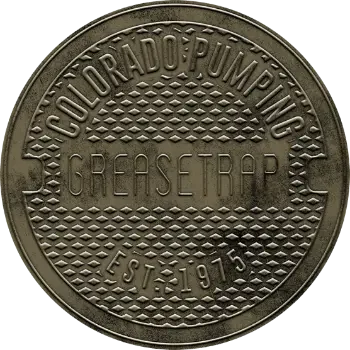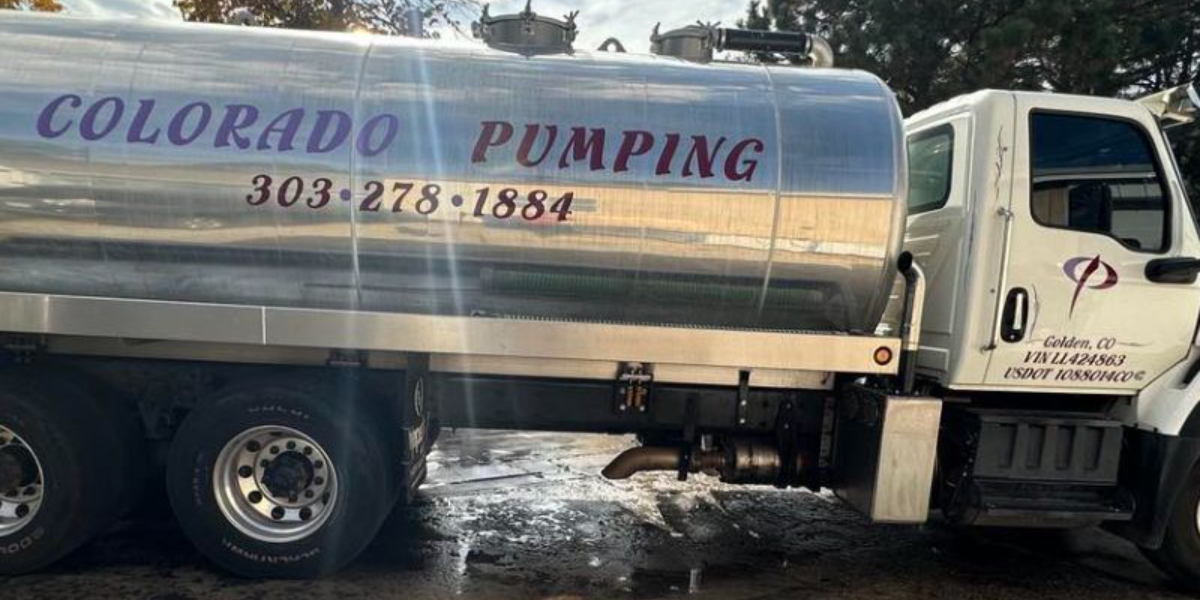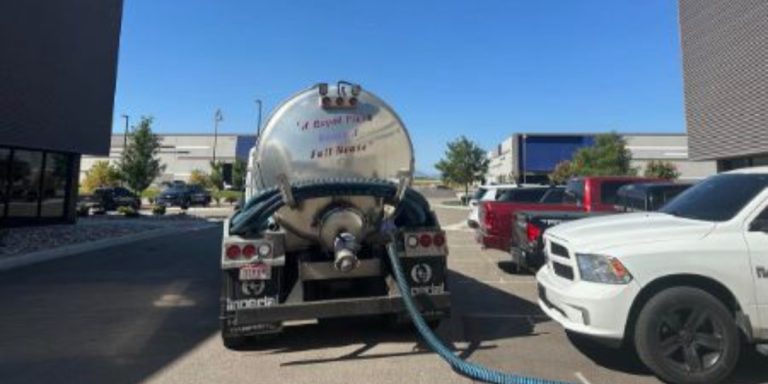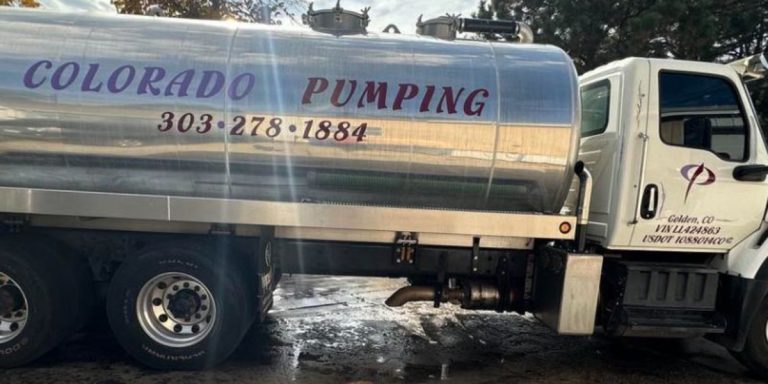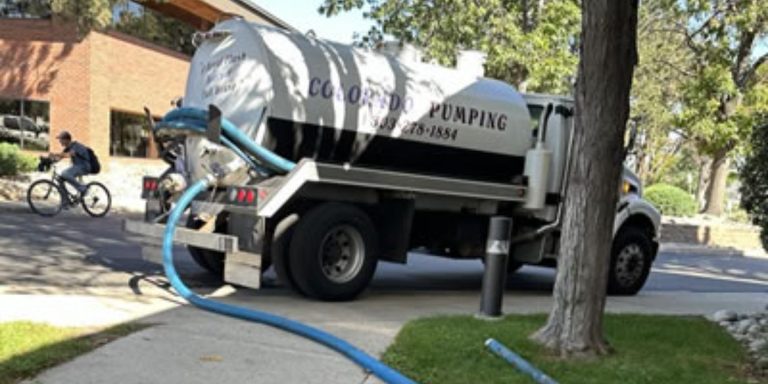How Does a Grease Trap Actually Work?
If you operate a restaurant, café, or commercial kitchen in the Denver Metro area, your plumbing depends on one essential but often-overlooked component: the grease trap. This simple system protects your drains and the city sewer system by capturing fats, oils, and grease (known as FOG) before they can cause damage.
At Colorado Pumping, we’ve been maintaining grease traps and interceptors since 1978, helping Denver-area businesses prevent backups, odors, and costly repairs. Understanding how a grease trap works, and how to maintain it properly, helps business owners avoid unexpected downtime and expensive plumbing emergencies.
Why grease traps are essential
Every commercial kitchen produces wastewater that contains grease and food waste. Without a grease separation system, that waste hardens inside your pipes, causing clogs that can shut down operations and violate health codes.
A grease trap protects your plumbing by separating grease from wastewater before it reaches the sewer or septic system. When properly maintained, it keeps drains clear, prevents odor issues, and helps you stay compliant with local regulations.
Most Denver-area municipalities require commercial kitchens to maintain functioning grease management systems, making professional service a necessity, not an option.
What a grease trap is and where it’s located
A grease trap is a small tank installed indoors, usually beneath a sink or near dishwashing areas. It slows down the flow of hot, greasy water long enough for fats, oils, and solids to separate from the water.
Larger facilities like hotels and hospitals often use grease interceptors, which are bigger, outdoor versions of grease traps installed underground. Both systems use gravity to separate waste, but their capacities and maintenance needs differ.
How a grease trap actually works
A grease trap uses gravity and time to do its job. It slows down wastewater so grease can float to the top and solids can sink to the bottom, leaving cleaner water in between.
1. Wastewater enters the trap
Hot, greasy water from sinks or dishwashers enters through an inlet pipe. The design of this pipe slows the water and directs it downward, allowing separation to begin.
2. Layers form inside the tank
As the water cools, three layers naturally develop:
-
-
- Grease and oils float to the top because they are lighter than water
- Solids and food waste settle at the bottom
- Clean water remains in the middle layer
-
3. Baffles improve separation
Inside the trap, baffles guide the flow of water and prevent mixing. They slow down the flow and stop floating grease from escaping through the outlet.
4. The system repeats continuously
Every time you use your sinks, the same separation process occurs. Over time, however, grease and solids build up, reducing the trap’s capacity. Once it reaches about 25 percent full, it must be pumped and cleaned to prevent overflow or clogs.
Why grease traps need regular maintenance
When too much grease accumulates, the trap stops working effectively. Instead of separating, the grease begins to pass through your plumbing system, creating blockages and foul odors.
Common issues caused by full grease traps include:
-
- Slow or backed-up drains
- Rancid smells near sinks or floors
- Grease residue appearing on surfaces
- Health inspection violations or fines
Most commercial kitchens in the Denver area require grease trap pumping every 30 to 90 days, depending on cooking volume and food type.
What happens during professional grease trap pumping
When Colorado Pumping services your grease trap, our process ensures thorough cleaning and proper operation:
-
- Inspection – We check the trap’s condition, measure the grease depth, and record service data for compliance.
- Vacuum removal – Our 3,500-gallon trucks extract all contents, including grease, solids, and wastewater.
- Scraping and cleaning – We remove hardened buildup from interior walls, baffles, and fittings.
- System check – We inspect for cracks, corrosion, or damaged parts that could impact performance.
- Proper disposal – All waste is taken to approved treatment facilities in compliance with state and local regulations.
- Documentation – We provide a full report for your health and environmental records.
This process restores the trap’s capacity and prevents odors, backups, and costly plumbing repairs.
What happens if you skip maintenance
Neglecting grease trap service might save money short term, but the long-term costs are far higher. When FOG builds up, it can block pipes and cause serious plumbing and environmental problems.
If your trap isn’t cleaned regularly, you may experience:
-
- Persistent odors throughout your kitchen
- Overflow or water pooling near drains
- Grease entering the sewer line, risking city violations
- Emergency plumbing bills that far exceed routine maintenance costs
Routine pumping from Colorado Pumping is a simple, cost-effective way to prevent these problems and extend the life of your plumbing system.
The role of grease traps in local compliance
In the Denver Metro area, cities such as Aurora, Lakewood, and Golden have strict Fats, Oils, and Grease (FOG) management programs. These regulations require businesses to maintain and document regular grease trap cleaning.
Failing to comply can lead to citations, fines, or even temporary closures. Working with a licensed and insured provider like Colorado Pumping ensures your records are up to date and your system meets local environmental standards.
Case study: how one Denver restaurant avoided a shutdown
A Denver restaurant owner recently called Colorado Pumping after repeated drain backups and odor complaints. The kitchen’s grease trap hadn’t been serviced in over four months, and the buildup was blocking the outlet line.
We removed more than 100 gallons of hardened grease, cleaned the trap, and restored normal flow within hours. The restaurant immediately noticed faster drainage and no more odors. They now follow a 60-day maintenance plan, saving hundreds of dollars annually on emergency plumbing calls.
Why professional service matters
While some kitchen staff attempt to clean small traps themselves, it’s nearly impossible to remove all grease and solids without professional equipment. DIY methods often leave behind residue that quickly builds up again.
Hiring Colorado Pumping ensures:
-
- Complete removal of grease and solids
- Safe, environmentally responsible waste disposal
- Inspection and maintenance by trained professionals
- Detailed documentation for health inspectors
With more than 45 years of experience, we know how to keep grease traps and interceptors performing efficiently for every type of commercial kitchen.
How often should you pump your grease trap
The right pumping frequency depends on your kitchen’s size, menu, and volume. As a general guideline:
-
- Small cafés or bakeries: every 2–3 months
- Moderate restaurants: every 1–2 months
- High-volume kitchens: every 30 days or less
Our technicians track grease levels during each service to optimize your schedule and ensure your system stays compliant year-round.
Why Denver businesses trust Colorado Pumping
For over four decades, Colorado Pumping has been a trusted name in grease trap, interceptor, and septic maintenance across the Denver Metro area. Businesses choose us because:
-
- We are family-owned and operated, serving Colorado since 1978
- Our team is licensed and insured for all pumping and hauling services
- We offer 24-hour emergency service when problems can’t wait
- Our technicians are professional, experienced, and dependable
- We follow all environmental and disposal regulations
- We have a 4.9-star customer rating for reliable, high-quality service
Serving Denver Metro and surrounding areas
Colorado Pumping proudly serves businesses and property owners in:
We also offer septic tank pumping, lift station maintenance, and RV park septic services for commercial and residential clients throughout the region.
Keep your kitchen running smoothly — schedule service today
Protect your business with professional grease trap cleaning from Colorado Pumping
Regular maintenance keeps your plumbing efficient, prevents costly downtime, and ensures compliance with local FOG regulations. Whether you manage a restaurant, hotel, or commercial kitchen, we provide fast, dependable service across the Denver Metro area.
Call (303) 278-1884 or request an estimate online to schedule your next grease trap service. We proudly serve Denver, Arvada, Aurora, Golden, and surrounding Colorado communities with trusted grease trap, interceptor, and septic maintenance.
